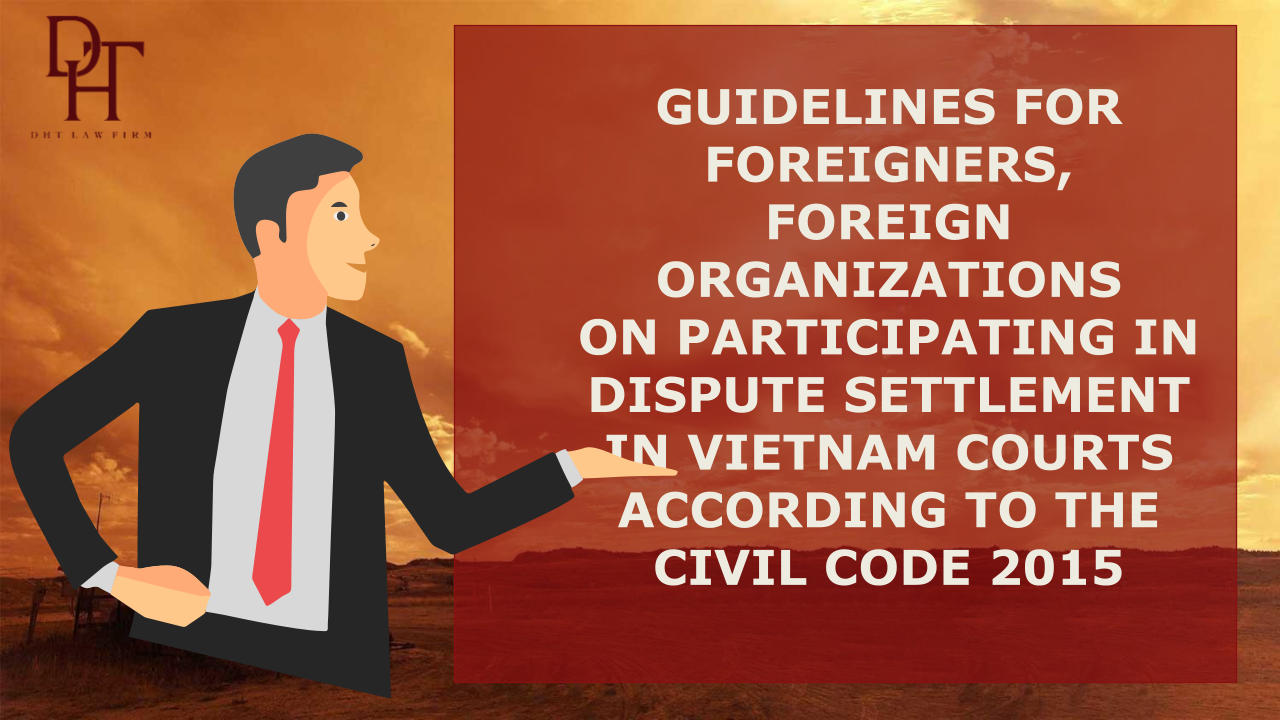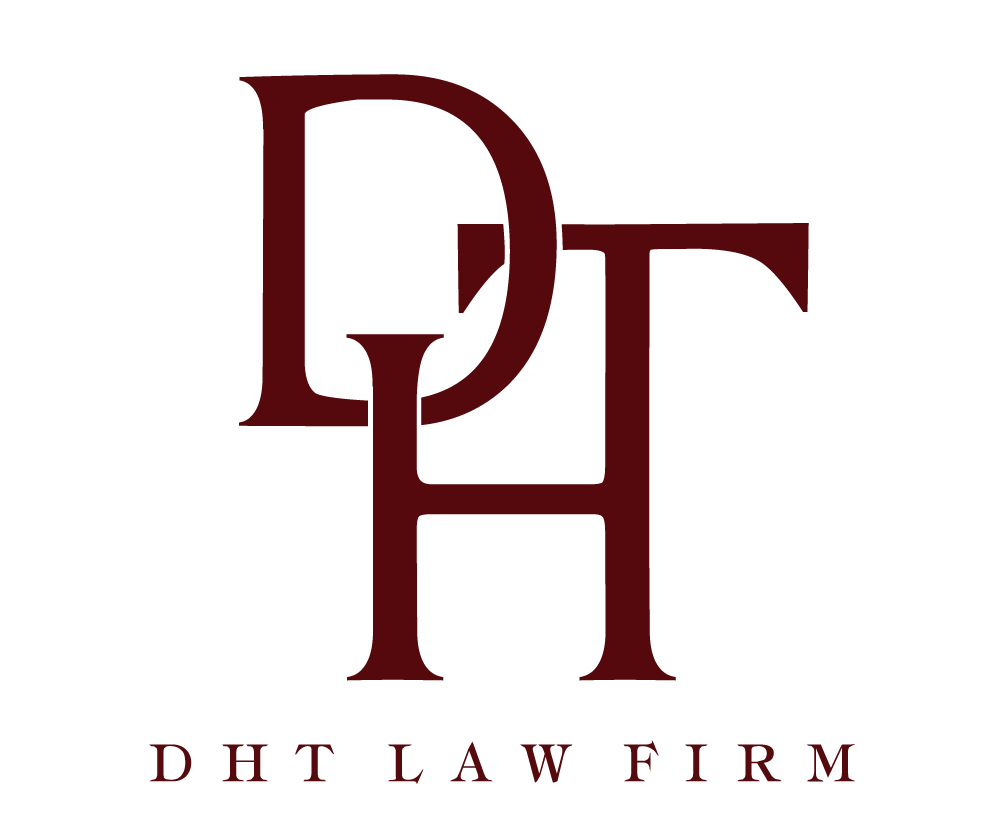
GUIDELINES FOR FOREIGNERS, FOREIGN ORGANIZATIONS ON PARTICIPATING IN DISPUTE SETTLEMENT IN VIETNAM COURTS ACCORDING TO THE CIVIL CODE 2015
Currently, with the policies of our Party and State, the diplomatic situation between Vietnam and other countries is increasingly developing. As a result, it has led to the expansion of foreigners and foreign organizations doing business and trading in Vietnam, which has been running a higher risk of legal disputes associated with the companionship between Vietnamese and foreign corporations as well as individuals. Therefore, We - Dai Ha Thanh Law Firm would like to send you various guidelines for valued clients when participating in dispute resolution at competent courts in Vietnam in accordance with the Civil Code 2015.
According to the Nationality Law 2014: “Foreign nationality is the nationality of a country other than Vietnamese nationality”. Therefore, a foreigner is a person who has a nationality of another country other than the Nationality of the Socialist Republic of Vietnam.
According to Law on Enterprise 2020: “Foreign organization means an organization established overseas under the foreign country’s laws”. Thus, a foreign organization is an organization established outside of Vietnam's territory and isn’t governed by Vietnamese law.
Based on the definitions discussed herein, it appears that the disputes occurring in the presence of one of the above two subjects are governed by Chapter XXV of the Civil Code 2015 (specifically in Article 663 of this Law) and Chapter XXXVIII of the Code of Civil Procedure 2015. Here are numerous guidelines when participating in dispute resolution at the Courts of competent levels for the above two subjects:
1. Regarding dossiers and evidence provided by foreign agencies, organizations, or individuals to Vietnamese Courts
With the purpose of recognizing dossiers and evidence provided by foreign agencies, organizations, or individuals to Vietnamese Courts, the aforementioned subjects have obligations to comply with the following provisions:
Regarding foreign authorities and organizations:
- Papers, materials, and notarized or certified Vietnamese translations have been legalized by consular offices;
- Papers and documents are exempt from consular legalization in accordance with Vietnamese law or International treaties to which the Socialist Republic of Vietnam is a signatory.
Regarding foreigners:
- Foreign-language papers and documents already translated into Vietnamese are lawfully notarized or certified in accordance with the Vietnamese law;
- Papers and documents made in a foreign country are notarized or certified in accordance with the law of that country and have been legalized by consular offices;
- Papers and documents made in Vietnamese by overseas Vietnamese citizens with their signatures certified in accordance with Vietnamese law.
2. Regarding Representatives, Defense counsels of involved parties' legitimate rights and interests
Regarding Representatives
The representatives in civil procedures comprise the representatives at law and the proxy representatives. For the proxy representatives, the involved parties need to make a notarized document to ensure legitimacy in the dispute settlement process.
Regarding Defense counsels of involved parties' legitimate rights and interests
Defense counsels of involved parties' legitimate rights and interests participate in court in the following capacity:
- Lawyers;
- Legal aid officers;
- Representatives of employee collective’s representative;
- Vietnamese citizens who have full civil act capacity, have clean criminal records or have been expunged convictions, who do not fall into the cases subject to the application of administrative handling measures; who are not cadres or civil servants in the Court or procuracy sector, officers or non-commissioned officers in the public security force.
3. Regarding the Competent to settle disputes
Jurisdiction is the right to consider and decide in adjudication activities of the Court in accordance with the law of the court. Determining the right court is considered one of the most important steps in implementing dispute resolution.
Vietnamese Courts to resolve civil cases involving foreign elements according to Common jurisdiction:
- The defendant is an individual who resides, works or lives for a long term in Vietnam;
- The defendant is an agency or organization which is headquartered in Vietnam or the defendant is an agency or organization that has a branch or a representative office in Vietnam, applicable to cases related to the operation of the branch or representative office in Vietnam of such agency/organization;
- The defendant has properties in Vietnam;
- The divorce cases with the plaintiffs or the defendants being Vietnamese citizens or involved parties being foreigners who reside, work or live for a long term in Vietnam;
- Civil cases related to civil relations which are established, changed, or terminated in Vietnam, objects of which are properties in Vietnam or acts performed in Vietnam;
- Civil cases related to civil relations are established, changed, or terminated outside of Vietnam’s territory but involve rights and obligations of Vietnamese agencies, organizations, and individuals or agencies, organizations, and individuals that are headquartered or reside in Vietnam.
Additionally, the determination of a specific court to settle each type of dispute shall depend on the content of the case, the nature and extent of the incident, and the dispute arising, which determines the competent court to accept the interpretation dispute resolution of the parties
4. Regarding the languages
Spoken and written language used in civil procedures shall be the Vietnamese. For disputes involving foreigners or foreign organizations, such involved parties still have the right to use the other languages with required interpreters.
Interpreters shall be selected by an involved party or under the agreement between involved parties and are accepted or requested by courts. The provision of interpreters at court hearings plays a crucial role in assisting litigants who fail to have professional Vietnamese linguistic skills, to put it in other words, those individuals lack the capabilities to protect their legitimate rights and interests effectively.
Therefore, We recommend that you propose an interpreter to the Court to accept or ask the Court to appoint an interpreter.
It is self-evident that the defender of the legitimate rights and interests of the litigants has an essential role. Especially lawyers, who are professionally trained in law, have a deep understanding of legal knowledge, shall help You participate in protecting the best legal rights and interests.
Above is DHT Law Firm’s legal advice for foreigners and foreign organizations to participate in disputes at competent Vietnamese courts. With a team of experienced lawyers, legal advisors, DHT Law Firm has been making additional efforts to provide professional legal services to Value Clients. If you have any further questions or concerns, please contact us for timely and effective support.
